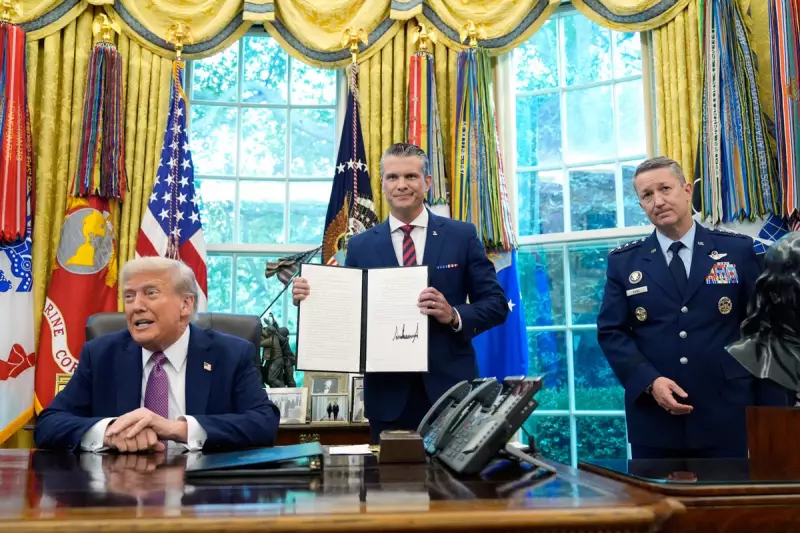
Former US President Donald Trump is facing a backlash from top military figures and historians over alleged plans to dramatically rebrand the Pentagon, the headquarters of the US Department of Defence, as the 'Department of War'.
The controversial proposal, reportedly discussed with close associates, would see the historic name of the Pentagon replaced—a move critics argue would mark a significant and dangerous shift in American defence philosophy.
A Return to a Discarded Doctrine
The potential name change is not merely symbolic. It harks back to a previous era in American governance; the nation's defence operations were indeed managed by the 'Department of War' from 1789 until 1947. Following World War II, the National Security Act was passed, establishing the National Military Establishment. This was renamed the Department of Defence in 1949, a change intended to unify the Army, Navy, and Air Force under a single civilian-led department and to emphasise the primary goal of national defence over outright aggression.
Reverting to the older terminology, experts warn, would signal a move away from this cohesive, defensive-minded approach. Dr. Peter Kuznick, a renowned historian, condemned the idea, stating it would 'glorify war' rather than promote the primary objective of defence and security.
Criticism from the Corridors of Power
The reaction from within the US defence and political establishment has been swift and critical. A spokesperson for current Secretary of Defence, Lloyd Austin, declined to comment on the reports but reaffirmed the department's commitment to its core mission.
More vocal criticism came from former high-ranking officials. Ex-Pentagon chief of staff Jeremy Bash called the concept 'ridiculous and dangerous', suggesting it reveals a fundamental misunderstanding of the department's role. Similarly, a former senior CIA officer warned that such a change would be 'deeply damaging' to America's standing on the global stage, potentially alienating allies and emboldening adversaries.
Implications for Global Perception and Policy
The debate extends beyond semantics. Analysts suggest that a 'Department of War' would project an image of a bellicose and aggressive United States, undermining decades of diplomatic effort. The current name embodies a doctrine of deterrence and collective security, principles that have underpinned Western military alliances like NATO.
A shift in nomenclature could indicate a parallel shift in policy, prioritising military confrontation over diplomacy and defence. This has raised concerns among international allies about the future direction of US foreign policy should such a proposal ever come to fruition.
While still a reported idea rather than confirmed policy, the very discussion of a 'Department of War' has ignited a fierce debate about America's values and its role in the world, highlighting the deep divisions in its political landscape.





